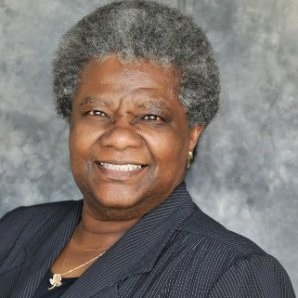Billie’s Blog: The Antiracism Book Club Explained
You may have considered joining the Center’s Antiracism Book Group announced in the newsletter, but you have some questions and do not know whom to ask. May this month’s post be useful.
According to Statista, in 2020, of the 1,020 people killed by police officers, 243 were Black. These numbers included Breonna Taylor, murdered on March 13 in Louisville, Kentucky, and George Floyd, murdered on May 25 in Minneapolis, Minnesota. These headliners led Terri Mork Speirs, then the Center’s Director of Community Relations, to post a statement of solidarity with the Black Community on the Center’s homepage of the website.
Speirs also set out to form an antiracism book club within the Center, which she and I planned and co-facilitated. The intention and focus of the Group were, and remain, to learn about the relationships between Black people and white people and act when and where possible to mitigate harm. The Antiracism Learning Group debuted on Monday, July 13, 2020, with discussion of How to Be an Antiracist by Ibram X. Kendi. Since then, we have become the Antiracism Book Group and have discussed sixteen books. When Terri pursued new opportunities in the fall of 2021, I took on the role of full facilitator.
The Group is free, however, each member gets the book on their own. Books are most often available from Amazon, Barnes & Noble, Thriftbooks, and local bookstores, and public libraries, both of which I recommend and support. Although I select the books we discuss, members suggest most of our reading. The Group has explored many topics, from Black history to white privilege and much more.
I divide the books into five sections, and we meet five consecutive Mondays, 6 p.m.-7:30 p.m. Central Time on Zoom. I alternate the sessions between fiction and nonfiction books. There is a two-Monday break between each book, and we do not meet in the months of November and December.
To be added to the email list and join the group, email your name and phone number to me at the email address in the newsletter with the subject line, “Antiracism Book Group.” If you use a device other than a computer, and sign in using your phone number, I must be able to identify you. I will add you to the list. You will then receive all communications, and for security purposes, only those on the email list receive the access link. People who get the link from someone other than me are not permitted entrance. For privacy, all communications are emailed using blind carbon. Opt-out is easy too—just notify me by email and I will remove your information. Otherwise, you remain on the list even if you never attend a discussion. For a myriad of reasons, unique to everyone, some people like to follow the Group as we move through the books.
Confidentiality within the Group is essential. From the Group’s inception, we intended people to express their heart in this brave space. Our discussion is popcorn style, and everyone is encouraged to speak openly.
A highlight of the Group came on Monday, May 23, 2022. The week before, we wrapped up our discussion of These Walls Between Us, co-authored by Wendy Sandford (white) and Mary Norman (Black). “In the mid-1950s, a fifteen-year-old African American teenager named Mary White (now Mary Norman) traveled north from Virginia to work for twelve-year-old Wendy Sanford’s family as a live-in domestic for their summer vacation by a remote New England beach” (Amazon). Over the years, the two formed a lasting friendship. To the delight of the Group, Mary and Wendy joined us for a special one-hour interview and Q and A session. The women talked candidly about their relationship and the difficulties that defined how their friendship blossomed.
Black people often are asked why we need to keep alive the tough conversations about race relations. In 2024, police officers shot and killed 1,173 civilians, 248 of whom were Black. With the current efforts to erase Black history, downplay the horrors of slavery, and the continued existence of health and healthcare disparities, and educational and employment inequities, it is incumbent upon everyone to educate and empower themselves and others, so right actions can be taken. These imbalances and many more are fueled by fear and hatred, both of which are unacceptable. People are getting hurt. People are dying. People are rising. Learn all you can, then act. Become one who is rising.
Billie Wade is a gregarious introvert whose primary interests are writing, lifelong learning, personal development, and how we all are affected by life’s vagaries.
Issues facing Black people, women, the LGBTQ community, and aging adults are of particular concern to her. She enjoys open-hearted dialogue with diverse people. The opinions expressed here are her own.

